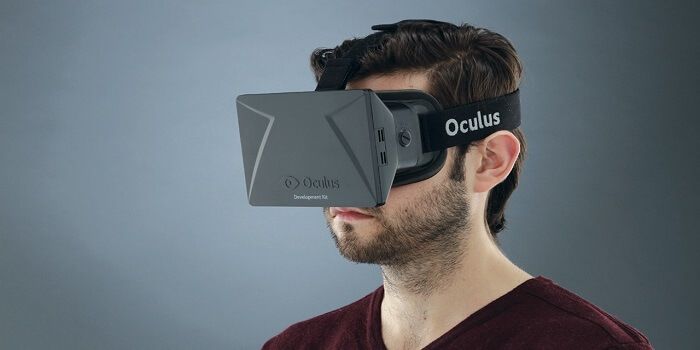Virtual reality (VR) is being tipped as the next revolution in gaming, and the Oculus Rift headset is right at the front of that charge. The device, which is expected to be released for consumers in early 2016, will have 1080p HD screens and will allow gamers to feel as though they are quite literally in the worlds that they're seeing.
If Oculus Rift is to do well, much of its success hinges on its price and the availability of games. Many games have already announced Oculus compatibility including Elite: Dangerous, DayZ, Project CARS, and Star Citizen. Even Oculus Rift support for Minecraft is a possibility. As for the Oculus Rift's price, Oculus has estimated that the device on its own will likely cost somewhere between $200-400 but for those whose computers can't handle the headset, the price could exceed $1,000.
Speaking at the Re/code Code Conference, Oculus CEO Brendan Iribe discussed Oculus Rift's "all-in" price, explaining that "if you have to go out and actually need to buy a new computer and you’re going to buy the Rift … at most you should be in that $1,500 range". Two weeks ago Oculus revealed the recommended specs for Oculus Rift saying that if players want to get a decent level of performance from the headset, then their computers will need to have at least 8GB of RAM, an NVIDIA GTX 970 or AMD 290 graphics card and an Intel i5-4590 processor (equivalent or greater). Specs like that don't come cheap; hence that $1,500 cost.
Iribe did say that he expected the price to decrease below $1000 during the course of the Oculus Rift's life, something which seems likely as computer components will get cheaper and the Oculus teams could find more affordable ways to manufacturer the headset. However, when the headset is released next year, this price point could be a significant hindrance to its success
$1,500 is not a high price to those who are already looking to buy a new computer or upgrade their existing one, but for casual gamers who are happy with lowerend computers, that price point is going to be a huge barrier. That amount of money is a significant investment and is a significant risk at launch too, as people won't know if virtual reality headsets have longevity or not. As seen with Sony's PlayStation Move and Xbox One Kinect, it's not always easy to gauge how long new gaming tech will be supported.
Furthermore, Oculus Rift faces competition from Sony's Project Morpheus and HTC and Valve's Vive. Sony has said that they wouldn't be making Project Morpheus if they didn't think it was affordable and Vive comes with two additional controllers and the 'lighthouse' base, so if the recommended PC specs for it are lower than Rift's, Oculus' VR offering could be in trouble.
Source: Polygon

